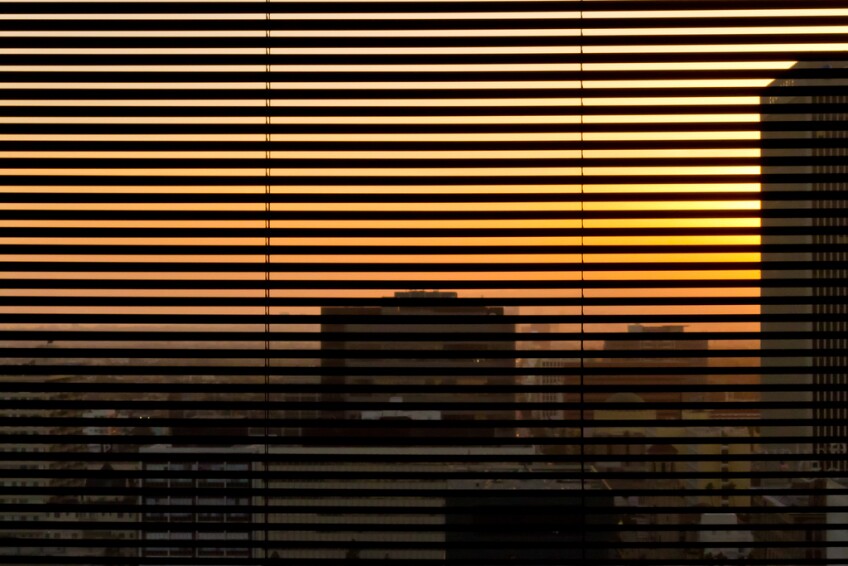10 Ways to Stay Cool on Extreme Heat Days

With more extreme heat days and heat waves expected as a result of climate change, we can naturally expect more heat-related illnesses. Here are some ways to stay cool and safe, including some words of wisdom from Dr. Elizabeth Rhoades, who works on Emergency Preparedness and Response for the Los Angeles County Department of Public Health.
Drink cool water on extreme hot days -- even if you're not thirsty. “It's important to remember that the body can only replenish water at a set rate," said Rhoades. Also worth noting: It's possible to become dehydrated without evident symptoms, as certain medications inhibit the body's ability to sweat.
Not all fluids are good for keeping you cool. Alcohol and caffeine are dehydrating drinks, while sugary drinks like soda can make dehydration worse. Cool water is best; make sure your water is cool but not too cold, as iced cold water can cause cramping.
Even those without medical conditions are affected by extreme heat. While the most vulnerable to the effects of extreme heat include children, seniors, outdoor workers, and those with chronic medical conditions, we are all impacted. "Heat places stress on the body -- it's useful to think of it that way for everyone," said Rhoades.
When it comes to outdoor activities, heat evens the playing field. That is, even the physically fit are vulnerable to heat-related illness, including heat cramps, heat exhaustion, and heat stroke. As an example, "serious hikers in serious heat are still impacted," said Rhoades. "When it's hot enough, there's no way to replenish enough fluids to stay cool. It's sad to say, but in certain conditions there's no way to go on a healthy hike."
Cool off in water. Take a cool shower or cool your feet; a quarter of the body's sweat glands are in our feet, so keeping them cool in extreme heat can help cool your body.
Know the signs of heat exhaustion and heat stroke. If untreated, heat exhaustion will lead to heat stroke, a serious condition that can cause brain damage and death. Heat exhaustion signs to look for: muscle cramps, excessive sweating, weakness and fatigue, skin that is pale and clammy, headaches, dizziness or confusion, fast and shallow breathing, nausea and/or vomiting, and fainting. Treatment for heat exhaustion includes rest in a cool and shady area, drinking lots of fluids, applying cool, wet cloths to skin, and elevating feet 12 inches. Someone with heat exhaustion will appear pale, while someone with heat stroke will appear flushed. With heat stroke, the body's temperature control system is disabled and the affected person stops sweating; the person with heat stroke can become confused and dizzy, develop a throbbing headache, and/or have a rapid or strong pulse before becoming unconscious. If you or a companion are showing signs of heat stroke, get help immediately.
Protect yourself from the sun. Dark-colored clothing absorbs heat from the sun's rays, so wearing light-colored clothing and a hat can protect you from the sun and help you stay cool. You can also cover windows with shades or blinds during daylight hours to prevent sunlight from overheating your home.
Power down during heat waves to prevent outages and keep your home cool. Power outages during heat waves put more lives at risk, and setting your air conditioner between 75-80 degrees will help prevent blackouts. It's also recommended that you unplug lights and equipment you're not using and to limit the use of appliances during peak energy hours in the evening.
On extreme heat days, LA opens free cooling centers. Libraries, pools, and shady parks offer respite from the heat, as well as other cooling centers opened on extreme heat days. Call 211 or check online for centers from the Department of Public Health and the City of LA.
Fans are for people, not rooms. No air conditioning? Aim that fan right at the people you want to keep cool. Don't count on it to make the room itself cooler. Fans in a hot room just move hot air from place to place. Using a fan in a hot room will not cool the room, but by helping your sweat evaporate it can cool you. (An exception: if you're blowing cooler evening air from outside into a house that's still overheated from the daytime. During the day, it's often hotter outside than in and a window fan may make things worse.)
By being a good neighbor, you can save lives. "We also recommend that people keep track of people around them who might vulnerable," said Rhoades. Make an effort to check on neighbors who live alone, especially seniors and those with medical conditions.
You can make your home cooler with shade trees and cool roofs. If you are a homeowner and in a position to do so, planting shade trees and installing a cool roof will keep your home cooler. "We're also trying to proactively work in Los Angeles on urban heat island solutions, so people will feel less affected by heat," said Rhoades. You can request shade trees from CityPlants or the City's Street Trees program.